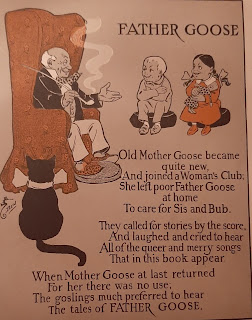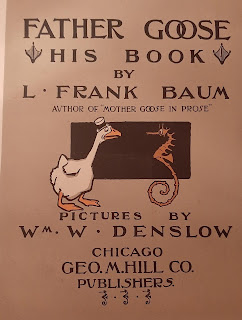Charlie Stross turns 55 today (damn kids!), so it's a good time for a look at his short fiction!
Locus, February 2002
Asimov's also features the latest of Charles Stross' stories about Manfred Macx, genius information entrepreneur in a frenetic near-Singularity future. In "Tourists", Manfred's enhanced glasses, and attached memory, are stolen, and he finds himself essentially unable to cope. Fortunately, his lover Annette and his AI cat Aineko are soon on his track, and there is a chance for a solution, involving alien tourists, lobsters, and avatars of a dead man. I don't think this is the best of Stross' Macx stories -- perhaps the idea density which has been so impressive throughout the series is losing some impact -- but it is another solid outing by one of the most impressive of Britain's "Radical Hard SF" clade.
Locus, June 2002
The latest of Charles Stross's Manfred Macx stories is "Halo" (
Asimov's, June), stepping forward a generation to focus on Manfred's daughter, Amber. Amber has sold herself into slavery to herself, in order to escape the clutches of her mother, Manfred's villainous ex-wife, the IRS agent Pamela. But Mom finds a way to get at Amber even in the Jupiter system. How can Amber deal with this latest threat? As with earlier Macx stories, the real meat is in the tossed-off details of life as we approach a Vingean singularity, and in the clever touch Stross displays in describing his high-tech future and its economics – such as an asteroid taking on the personality of Barney ("I love you, you love me, it's the law of gravity …"). Beyond the jokes and tech Stross has a bigger story to tell in this series, and "Halo" advances the overall arc an intriguing bit.
Locus, October 2002
The other novella, perhaps even stronger, is the latest and to date longest of Charles Stross' Manfred Macx stories, "Router" (
Asimov's, October). Manfred's daughter Amber, the Queen of the Ring Imperium (a monarchy located around Jupiter), has sent virtual copies of herself and her court on a lightsail-propelled ship to a brown dwarf. She and her people hope to find a router there for interstellar communication (based on information they have gleaned from the "lobsters" of the very first story in the series). She is also dealing with another lawsuit from her estranged mother – luckily the local laws of her monarchy apply, including trial by combat. And back home in the inner Solar System, humanity is close to a Vingean singularity. This story, as with all of Stross' recent stories, is just brimming with, put most simply, Very Cool Ideas, and it also still manages to have likeable characters, a clever and involving plot, and an intriguing resolution opening up nicely to the next story in the sequence. (How Stross will keep upping the ante as the series continues, though, I surely don't know!)
Locus, January 2003
The December offering from
Sci Fiction begs comparison with "Junk DNA", if only because both stories are collaborations by writers noted for madcap near future extrapolation. "Jury Service", by Charles Stross and Cory Doctorow, concerns a man who is selected to serve on a "jury" evaluating, for safety and utility, some tech downloaded from post-singularity, all the while worrying about a bio-hazard that seems to have infected him. The plot is twisty and interesting and frenetic, and the heart of the story, the depiction of wacky future tech and social adjustments to that tech, is neat stuff.
Locus, December 2003
The December
Asimov's features two more novellas. Charles Stross's "Curator" is the latest in his Accelerando series, following Manfred Macx and his descendants as humanity goes through a Vingean Singularity. This story introduces Manfred's grandson Sirhan. Sirhan is waiting for his "mother" Amber to return from her trip to the Router, an alien installation at another star. He plans to claim all her assets as child support, even though he is really the child of another, now dead, version of Amber. Manfred's long-estranged first wife has her own plans for her family. While of course Aineko the cat has other ideas. It's more of the same fascinating stuff as the earlier stories in the series, but it doesn't work quite as well. I think this is because this story seems more a transition, more part of an eventual novel, less self-contained. Still, the wit and audacious inventiveness that we expect from Stross remain.
Locus, February 2004
DAW's "monthly magazine" of themed anthologies offers a reliable if seldom exciting source of new SF and Fantasy. 2003 closes with Mike Resnick's
New Voices in Science Fiction: 20 short stories by new writers (variably defined: from complete unknowns like Paul Crilley to well-established writers like Kage Baker and Susan R. Mathews). For the most part the stories seem more promising than outstanding. A high point is Cory Doctorow and Charles Stross's "Flowers From Alice", a very clever story of posthuman marriage with a delightful ending twist.
Locus, August 2004
I mentioned Emswhiller's story from the second issue of
Argosy, dated May-June. I think the magazine is successfully straddling genres according to its apparent ambition. Besides the Emshwiller story there is a fine mystery by O'Neil DeNoux, a nice humorous Lucifer Jones piece from Mike Resnick, and a very enjoyable wild pair of novellas from Cory Doctorow and Charles Stross. Their 2002
Sci Fiction novella "Jury Service" is reprinted, followed by a brand new story, "Appeals Court", that follows directly from the first. Our hero, Huw, carrying an Ambassador from the post-Singularity "Cloud" of uploaded intelligences, makes his way willy-nilly to a much-changed U.S. There he finds primitive Baptists, petroleum trees, a hypercolony of flesh-eating ants, and another Church promoting lots of sex. And he hasn't escaped Judge Judy either ... Like the first story, it's full of whipcrack smart satire and wild speculation – fun stuff.
Locus, October 2004
With Charles Stross, still often called a "hot new writer" though he has been publishing almost as long as McHugh, we can segue neatly from September to October-November at
Asimov's, as these issues see the final two stories of his acclaimed Accelerando sequence. "Elector" (second to last) is set on Saturn, where the remnants of relatively normal humanity, including a number of resurrected people based on historical figures, live in an artificial habitat. Amber Macx believes that the "Vile Offspring", humankind's descendants, running on "computronium" in the inner System, will soon destroy Saturn, so she is running for office, with a platform advocating escape on a starship. Sirhan, for whom Amber is an "eigenmother" (his mother was another version of Amber), regards her candidacy with some suspicion, especially as he suspects her of throwing a loose woman, Rita, at him. Manfred Macx, reincarnated, shows up as well. The final story is "Survivor", set decades later in a new human system built around a brown dwarf, using hacked alien "Router" technology. Sirhan and Rita have a son, Manni, who has some secrets of his own, which become significant when the artificial cat Aineko returns, wanting to close a long ago bargain. Both stories are enjoyable, though I think I liked "Survivor" more. "Elector" is denser with ideas but thin as a story – "Survivor", with the advantage of being the last in the series, comes to some real, and interesting, conclusions about Galactic society and the pitfalls of the Singularity.
Locus, April 2006
Probably best of all in
One Million A. D. is Charles Stross’s “Missile Gap”, which at first blush seems to violate the anthology’s guidelines: it is set in roughly the present day, though on a rather altered Earth. But not to worry! At any rate this Earth is sufficiently weird to hold one’s interest no matter how far in the future the story is set! It seems to have been moved, as of 1962, to an enormous disk, with escape velocity such that space travel is impossible. But the Cold War continues, sort of. The story follows an American effort to colonize a dangerous new continent, and a Soviet effort to explore the disk using an Ekranoplane – a very large seaplane. Disturbing discoveries are made by both groups, which might lead to more understanding of what has happened to Earth. But a third thread follows a shadowy spy, who it turns out has quite a different agenda to pursue, one with rather stark implications for humanity as a whole.
Locus, May 2006
Indeed Stross and Wolfe provide two of the better stories in
Baen's Universe's first issue. Stross’s “Pimpf” is a short novelette about the Laundry, the secret agency at the heart of his novel The Atrocity Archive. In this case Bob Howard has to deal with a new employee getting lost in a computer game, as well as menacing Human Resources types.
Locus, December 2006
Oh look – it’s 2007 already! At any rate, here is the January 2007
Asimov’s. The cover story is a very fun outing from Charles Stross called “Trunk and Disorderly”, a new entry in the shortish list of stories about “Elephants in Spaaace!” The elephant this time is a pet dwarf mammoth foisted on the narrator, Ralph, by his sister. Ralph is a member of the Dangerous Drop Club, and he is planning a drop from orbit to the surface of Mars. So he is not at all pleased to have to deal with a mammoth – especially after his sex-robot has just left him, and as he tries to break in a new butler. The whole confection is, as might seem clear, a bit Wodehousian, with SFnal interest supplied by details such as various semi-mechanical characters, and by the new political organization of the Solar System which includes, for instance, an Emirate of Mars, and by plenty of Stross’s slick offhanded incluing of future brainstem kicks. The plot is breakneck enough, involving a scheme to overturn the Emir, but plot hardly matters here – what matters is the fun we have getting to the end.
Locus, February 2010
Story collections often have good new stories as well. Indeed, often novellas, as with Charles Stross’s
Wireless, an excellent collection throughout, that closes with a brilliant time travel novella, “Palimpsest”. Pierce is recruited from something like our time by agents of the Stasis, an organization a bit like Asimov’s Eternity, devoted to preserving Earth and humanity across time and until the end of time. Stross extrapolates dizzyingly from this concept, showing us multiple histories of humanity, and multiple futures for the Solar System (and indeed Galaxy), and clever and chilling means of enforcement of Stasis, and inevitably the other side, the opponents. Pierce is given a real life (or lives) with emotional weight, and real decisions to make. The Asimov reference is purposeful – I have no doubt Stross had
The End of Eternity in mind when writing this story – but the story is its own.




